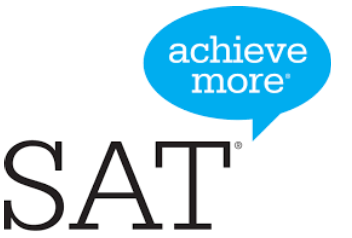Student Free Time and Schools Effect
Student Free Time in Quakertown Highschool: How School and Homework Effects This
January 20, 2022
Some suggest that a teacher’s objective is to make sure that their students are always continuing to learn, and retain the knowledge taught in school. Homework, as the name clearly implies, is to be done at home. This is a way for teachers to collect data on how well their students are understanding the material being taught to them.
How long is a normal school day? Six to seven hours, including a lunch break? How much more time per day can students possibly be spending on schoolwork, outside of school? The PawPrints staff surveyed 140 kids belonging to the Quakertown Highschool Community. 79.3% of these students say they are involved in extracurricular activities during after-school hours. 52.9% say they also have a job to keep up with. Add these hours together, how much time is spent on other responsibilities? 51% of the students say they spend, on average, over 3 hours per night on said “activities.” So how much time does that leave for the 2-4 hours of homework that 76% of students say they have per night?
Mental health should be the priority of any person, especially in teenage years. Spending time with friends and family or hobbies/ interests can be beneficial to an individual’s personal health. If a student gets home from school, immediately goes to a sporting event, then straight to work, and then immediately back home only to stay up until midnight completing homework, where is the time for themselves?
Self care is important through the critical developmental teenage years. Many things can get in the way of this, but school should not have to be one of them. That time of the day is sanctioned away specifically for school, so why are there findings of, in some cases, more than 4 hours of homework per night? Only 11.3% of the surveyed population say they can prioritize self care every night of the week. 52% of the surveyed population say they don’t have enough time with family and friends. PawPrints then asked if the reason for this was their schoolwork load outside of school. 46% said yes.
Not only will students struggle with this busy schedule, but some may not be able to manage it, and in the long run, could possibly end up decreasing their grades. The point of homework, projects, etc, is to raise and help a student’s grade, not lower it. 60% of students say they cannot “easily manage all of their responsibilities” once they come home from a 7 hour school day.
Other than simple yes and no questions, PawPrints staff also gave students the opportunity to voice their thoughts on more opinionated subjects. The staff posed the question, “Why do you think teachers give homework?” Receiving a variety of answers, it becomes clear that students mostly understand the purpose of homework. There were responses like, “to practice and further our understanding,”
“To prove you know the content,”
“To keep us actively learning outside of school,”
“So that we can problem-solve on our own,”
“So we can study outside of class.”
Normally, that majority of students understand the purpose of homework. But as always, there will always be those who disagree, or see ulterior motives from the teachers. Some of those things include, “they don’t like us,”
“To punish us,”
“For busy work,”
“Some teachers just have a power complex,”
“Because I guess the 7 hours a day isn’t enough??”
“That’s the way it’s always been and they see no reason to change that,”
“It’s a habit.”
Obviously homework isn’t intended, nor does it actually punish a student. We don’t expect any student to “like” homework, per say, but if there are so many who disagree with it, what are some things that can be done to change it? PawPrints asked the students if they had any ideas. We received countless amount of people who said things like, “Quick checks at the end of class to see if we were paying attention,”
“Quick checks, time in class after the lecture to ask questions,”
“Taking micro quizzes at the end of class that is not worth a lot of points.”
These ideas could possibly take the place of homework, since the main focus and reasoning is for teachers to collect data on how well their students are doing with the content. By giving a sort of “exit ticket” at the end of class, this will accomplish the same goal, without all the stress on the student.
As PawPrints continues to see a trend in the responses, we noticed one single response that showed clear passion about the subject. This particular student wrote six paragraphs stating their strong opinion on homework and its effects. Although we cannot cite the entire thing, (as the response is too lengthy) we can show the parts that show the most progressive need for change.
“Most students simply don’t have the time to focus on themselves because it is taken up by school. I don’t think any of us want to be held responsible for driving someone’s mental health down. I’m of the strong belief that homework is completely unnecessary for the most part. Although a great way to prove your strengths and weaknesses without the aid of a teacher, (homework) should be graded based on effort given and not the results…”
Evidently, there are students within the Quakertown Community that are struggling with the homework load assigned to them and have strong opinions on what needs to be done to change that. The results of the PawPrints survey demonstrate the tendency being exhibited by not only the number of students that took the time to voice their detailed opinions on the questions, but the number who opened the survey to begin with. For many individuals, homework isn’t supposed to be something that causes students to feel pressure or any sort of frustrations outside of school, but a lot of students suggest that teachers have trouble with the overall ability to see the workload being assigned within their schools. Although homework can be a good thing, and should be, it has turned into something that brings out more bad than good.
Reducing the amount of work given to students will create a balance of daily life and school life, making it easier to complete the assigned work without being overwhelmed. With 7 classes a day, sometimes rigorous courses, and the outside work on top of that, it can be troubling for students to keep up. According to Quakertown High school students, by limiting the homework load, they will have a better chance to learn in a less stressful environment, and have more successful learning experiences.













